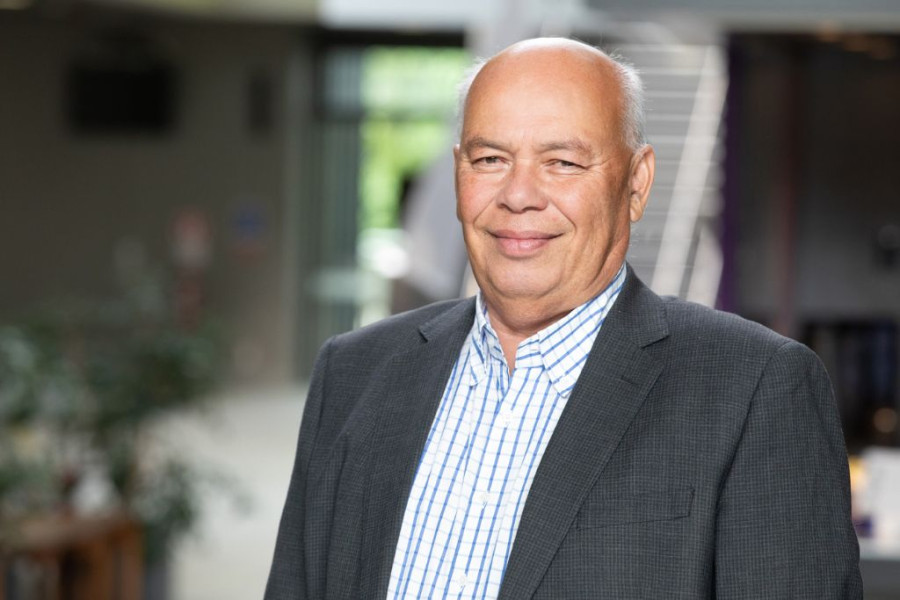Pacific health pioneer Sir Collin Tukuitonga becomes a Professor
Pacific health pioneer Sir Collin Tukuitonga becomes a Professor

A former Ministry Chief Executive has become one of just two professors of Niuean descent in the world.
Sir Collin Tukuitonga led what was then known as the Ministry of Pacific Island Affairs – now the Ministry for Pacific Peoples - from 2007 to 2012, and has had 45 years of experience addressing health inequities for Pacific peoples.
He has now joined the ranks of his University of Auckland colleague, Professor of Pacific Health Vili Nosa, also from Niue, a country with a population of less than 1,700 people.
Growing up in Niue with what he calls “a pretty basic existence”, Sir Collin was raised with the idea that everything he did was “centred around contributing to the family and helping in the village.
“I guess that’s where I got my sense of social justice – your talents are not just for yourself,” he says.
Receiving a scholarship to study medicine in Fiji at just 15-years-old, Sir Collin graduated as a junior doctor in 1979 and worked as a “real doctor” in family medicine for about 15 years.
He taught public health at the Fiji School of Medicine, set up a Pacific healthcare clinic in Auckland, worked as a GP, and became Director of Public Health at the New Zealand Ministry of Health in 2001.
Before leading the Ministry of Pacific Island Affairs, he spent three years working for the World Health Organization in Switzerland, where he developed a global strategy to improve diet and physical activity.
More recently, Sir Collin played an important role in advising the New Zealand government and communicating with Pacific communities during the COVID-19 pandemic. He is a director of Poutoko Ora a Kiwa – Centre for Pacific and Global Health at the University of Auckland, and was knighted in 2022.
“I’m not a true-blue academic. I didn’t do a PhD and stay in the university forever. I gained a lot of practical experience elsewhere, so it’s nice to be accepted by my peers in academic medicine,” says Sir Collin.
While working as a GP, he saw patterns of poor health related to “cold, damp, overcrowded housing, poor nutrition and delayed access to health care” that made him determined to help change the health system.
“I thought if I was involved in public health, you could theoretically prevent those problems.”
Through his incredible career, Sir Collin says he has been buoyed up by Pacific peoples thanking him for looking out for their wellbeing and speaking up for them.
